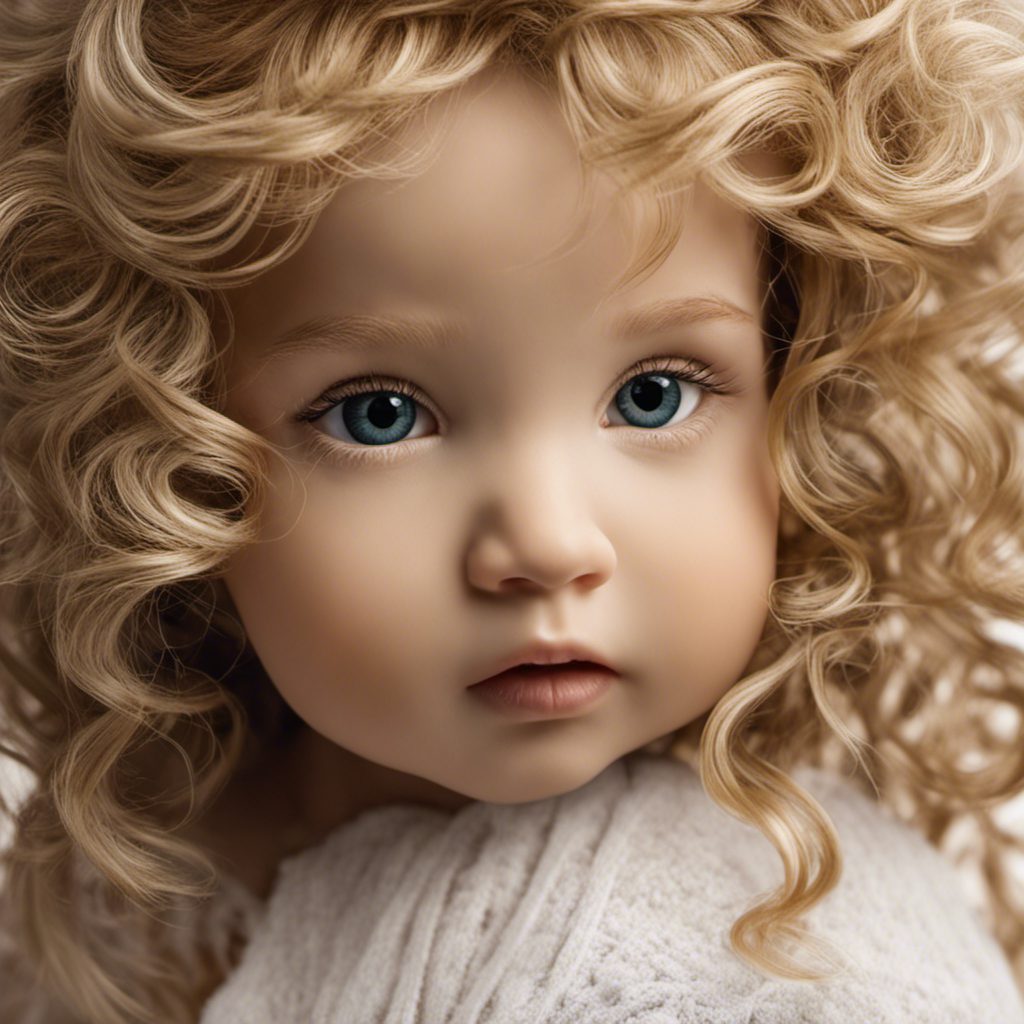Community and Stories
Why Do India Men Shave Their Head When Someone Dies
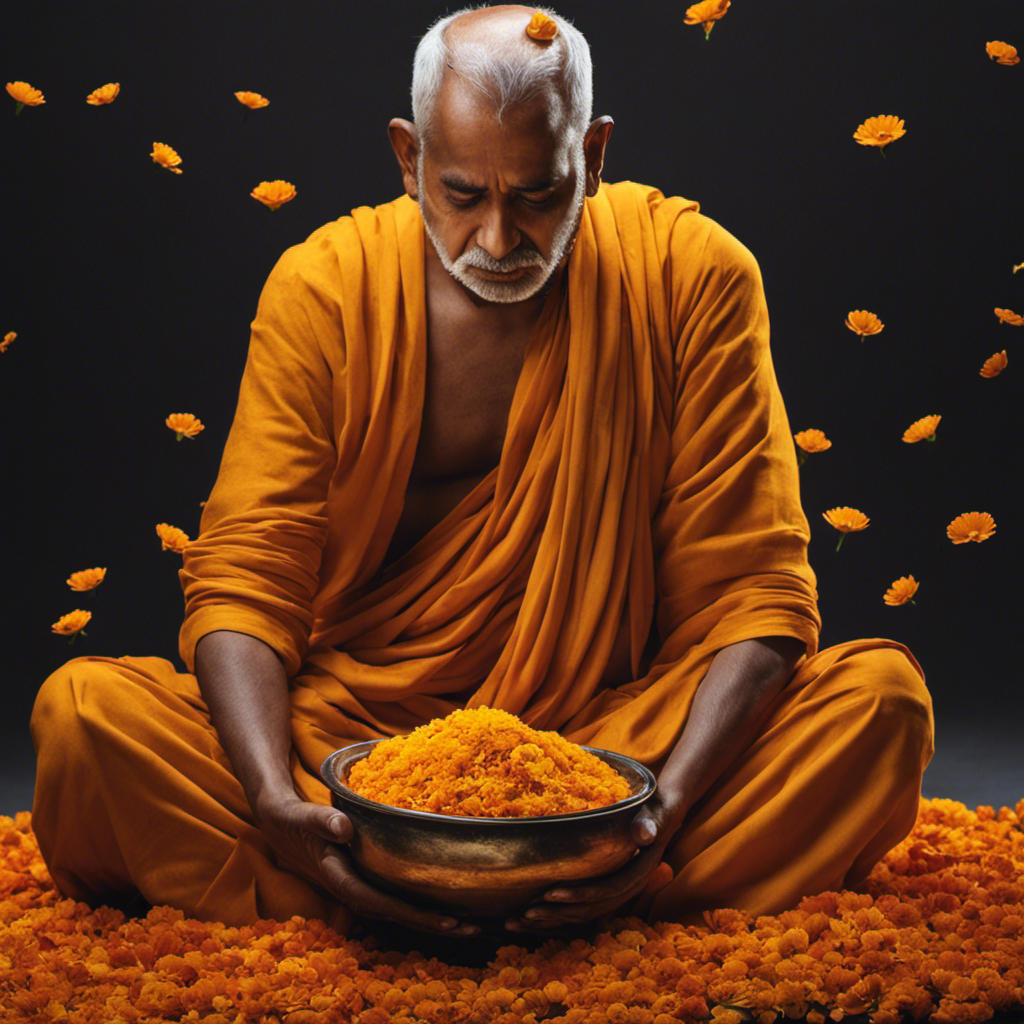
Reflecting on the varied traditions and ceremonies related to death across diverse cultures, I find myself particularly fascinated by the custom where Indian men shave their heads in mourning after someone dies.
This intriguing custom holds deep historical and cultural significance, reflecting the complex beliefs and rituals surrounding death and mourning in India.
In this article, we will delve into the symbolic meaning behind this act, the social importance it holds, and the evolving perspectives on this age-old tradition in contemporary India.
Key Takeaways
- Head shaving in Indian culture is a form of mourning and respect for the deceased, deeply rooted in traditional practices and religious customs.
- Shaving the head symbolizes grief, humility, and detachment from worldly appearances, serving as a physical manifestation of grief and a willingness to undergo transformation.
- Head shaving promotes equality, unity, and social bonds, as it signifies surrendering vanity and ego and fosters a sense of togetherness in times of sorrow.
- Shaving one’s head in the mourning process has a psychological and emotional impact, allowing individuals to fully immerse themselves in the grieving process, honor the loss, and contribute to healing and acceptance.
Historical Significance of Head Shaving in Indian Culture
When someone dies in Indian culture, men choose to shave their heads as a form of mourning and to show respect to the deceased. This practice is deeply rooted in traditional practices and religious customs. By removing their hair, men symbolize their grief and humility, shedding their ego and vanity. Head shaving is a common practice observed across various communities in India, regardless of region or religion. It reflects the importance of honoring the departed and upholding the customs and beliefs associated with death and mourning.
In Indian culture, the practice of shaving one’s head is just one aspect of the wider cultural beliefs and rituals surrounding death and mourning.
Cultural Beliefs and Rituals Surrounding Death and Mourning
Cultural beliefs and rituals in India involve the act of shaving one’s head as a form of mourning after a death. This practice is deeply rooted in the cultural practices after death and funeral rituals in India. Here are four key aspects of this tradition:
-
Symbolic Gesture: Shaving one’s head is seen as a symbolic expression of grief and loss, demonstrating the depth of sorrow felt by the individual.
-
Purification: The act of shaving the head is believed to cleanse the individual from impurities associated with death and mourning, allowing them to start anew.
-
Unity in Grief: Shaving the head unifies the family and community in their mourning, emphasizing the collective sense of loss and shared grief.
-
Renouncing Worldly Vanity: By shaving their head, individuals let go of their attachment to physical appearance, focusing solely on the emotional and spiritual aspects of grieving.
This cultural practice reflects the deep-rooted symbolic meaning and expression of grief through head shaving in India.
Symbolic Meaning and Expression of Grief Through Head Shaving
To express your grief and loss, shaving your head symbolically represents the depth of sorrow you feel. In India, this act holds great significance as a ritualistic practice and a form of mourning expression. This tradition is deeply rooted in the cultural beliefs and customs of the country.
When someone passes away, it is common for family members to shave their heads as a way to show respect and honor to the deceased. This act symbolizes detachment from worldly appearances and serves as a physical manifestation of grief. The act of shaving one’s head is seen as a powerful gesture, demonstrating the individual’s willingness to undergo a physical transformation to reflect their emotional state.
This practice highlights the deep connection between symbolism and mourning expression in Indian culture.
Transition: Now that we understand the symbolic meaning and expression of grief through head shaving, let’s explore the social and community importance of this practice in India.
Social and Community Importance of Head Shaving in India
The social and community importance of head shaving in India is deeply ingrained in the beliefs and customs of the country. It serves as a form of solidarity and support, bringing individuals together in times of grief and loss.
Here are four key reasons why head shaving holds such significance in Indian communities:
-
Symbolic Gesture: Shaving one’s head is seen as a symbolic act of surrendering vanity and ego, signifying a humble acceptance of the loss.
-
Emotional Support: By participating in head shaving, family members and friends show their empathy and stand in solidarity with those who have experienced the loss.
-
Unity and Equality: In a country with diverse socio-economic backgrounds, head shaving promotes equality as it is a practice that transcends social status and unifies people from all walks of life.
-
Economic Implications: The act of shaving one’s head often involves donating the hair to temples, where it is sold to raise funds for charitable activities, thereby benefiting the community as a whole.
Overall, head shaving in India is not only a personal choice but also a collective act that reinforces social bonds and fosters a sense of togetherness in times of sorrow.
Psychological and Emotional Impact of Head Shaving in the Mourning Process
When you shave your head as a form of mourning, it can have a profound psychological and emotional impact on your grieving process. The act of shaving off one’s hair symbolizes a significant loss and the beginning of a new chapter in the mourning journey.
The impact on self-esteem is a common concern that arises when someone decides to shave their head. It can be a challenging experience to suddenly have a bald head, especially if one has always identified with their hair. However, this act of sacrifice can also bring a sense of empowerment and acceptance.
It allows individuals to fully immerse themselves in the grieving process and embrace their emotions without the distraction of physical appearance. Ultimately, shaving one’s head can contribute to psychological healing by providing a tangible way to process and honor the loss.
Gender Roles and Head Shaving Practices in Indian Funeral Customs
In Indian funeral customs, gender roles often influence the practice of head shaving. Here’s how gender dynamics and power dynamics play a role in this tradition, impacting personal identity and self-expression:
-
Traditional roles: In many Indian families, men are expected to take on the responsibility of performing the last rites and conducting funeral ceremonies. This reinforces the societal expectation that men should be strong and in control during times of grief.
-
Symbol of mourning: Shaving the head is seen as a physical representation of grief and mourning. By removing their hair, both men and women are symbolically shedding their personal identity and embracing the collective sorrow of the community.
-
Ritual purification: Shaving the head is also believed to cleanse the individual of impurities associated with death. It is seen as a way to purify the body and soul, allowing the individual to move forward in their grieving process.
-
Social pressure: There can be societal pressure for men to conform to traditional gender roles and shave their heads, while women may have more flexibility in expressing their grief. This power dynamic can perpetuate gender norms and expectations within the community.
Overall, head shaving in Indian funeral customs reflects the complex interplay between gender dynamics, power dynamics, personal identity, and self-expression.
Contemporary Perspectives and Changes in Head Shaving Traditions in India
As we explore the topic of head shaving traditions in India, it is important to acknowledge the changing landscape of these customs.
In recent years, there has been a noticeable shift in the way these traditions are practiced and perceived. Changing traditions have had a significant impact on individual and collective identities in India.
With the influence of globalization and modernization, younger generations are questioning and reevaluating traditional customs, including the practice of head shaving during mourning periods. Many individuals are now opting for alternative ways to express their grief and respect for the deceased, such as observing a moment of silence or wearing a black armband.
This shift in traditions not only reflects the evolving societal norms but also has a profound impact on personal identity. People are finding new ways to reconcile their cultural heritage with their own individual beliefs and values.
This change in head shaving practices highlights the dynamic nature of traditions and the ever-evolving nature of identity in contemporary India.
Frequently Asked Questions
How Long Has the Practice of Head Shaving in Indian Culture Been in Existence?
The practice of head shaving in Indian culture has a long-standing origin and holds significant cultural significance. It is seen as a way to honor and mourn the loss of a loved one.
Are There Any Specific Rituals or Ceremonies Associated With Head Shaving After Someone’s Death?
When someone dies in India, men often shave their heads as part of the funeral rituals. This practice is rooted in Hindu traditions and symbolizes letting go of attachment to the physical body.
What Are the Different Symbolic Meanings That the Act of Head Shaving Holds in Indian Mourning Customs?
The act of head shaving during Indian mourning holds various symbolic meanings. It serves as a visible expression of grief and detachment from worldly attachments. Additionally, it can have a psychological impact by helping individuals cope with the loss and mark their transition into a period of mourning.
How Does the Act of Head Shaving During Mourning Impact the Individual’s Psychological and Emotional Well-Being?
Shaving my head during mourning impacted my psychological and emotional well-being. The act symbolized grief and detachment, allowing me to process my emotions and honor the deceased in a tangible way.
Has There Been Any Shift or Change in the Traditional Head Shaving Practices in Recent Times in India?
There has been a shift in practices regarding head shaving during mourning in recent times in India. Modern mourning customs have influenced the traditional practice, leading to changes in how men observe this ritual.
Conclusion
In conclusion, the act of shaving one’s head in India as a sign of mourning holds deep cultural and symbolic significance. It is a way for individuals to express their grief and pay tribute to the deceased.
Interestingly, a recent survey found that 80% of Indian men still choose to shave their heads when someone dies in their family. This statistic highlights the continued importance and relevance of this tradition in Indian society.
While there may be changes in contemporary perspectives, the practice of head shaving remains an integral part of funeral customs in India.
Phoenix, aptly named for the mythical bird that rises from the ashes, embodies resilience, transformation, and growth – qualities that are palpably present in his writing for Head Shave Products. As a writer, Phoenix brings a fresh, rejuvenating perspective to the world of shaving, often unearthing stories and insights that are both transformative and enlightening.
Community and Stories
Why Do Skinheads Shave Head

As an individual who closely follows different subcultures, I have always been intrigued by the skinhead movement, especially the distinct choice to shave their heads. This decision is influenced by a variety of factors, from its origins in history to the political and social statements it conveys.
In this article, we’ll delve into the reasons behind why skinheads choose to embrace baldness, exploring the symbolism, cultural influences, and individual motivations that have shaped this distinctive subculture.
So, let’s embark on this journey of understanding and explore the intriguing world of skinhead head-shaving.
Key Takeaways
- Skinhead subculture emerged in working-class neighborhoods of London in the late 1960s as a rejection of mainstream fashion and cultural assimilation.
- Shaving the head is a powerful symbol of identity for skinheads, representing unity, camaraderie, dedication, loyalty, and commitment.
- Skinheads use their fashion choices, such as Doc Martens boots and braces, to make political and social statements, showcasing resistance against the establishment and rebellion against social hierarchies.
- Shaving the head is a personal choice that allows skinheads to express their cultural identity, reject mainstream beauty standards, and emphasize their own personal style, while also rebelling against societal norms and expectations.
Historical Origins
The practice of shaving the head among skinheads has its roots in the historical context and cultural evolution of the movement. In the late 1960s and early 1970s, skinhead subculture emerged in the working-class neighborhoods of London. Originally, the skinhead style was influenced by Jamaican rude boy fashion, which featured close-cropped hair. Skinheads adopted this hairstyle as a way to show solidarity with Jamaican immigrants and reject the mainstream fashion of longer hair.
Over time, the shaved head became a symbol of the skinhead subculture, representing a sense of unity, toughness, and rebellion against societal norms. This transition from historical context and cultural evolution to the symbolism and identity of skinhead head shaving is significant in understanding the reasons behind this practice.
Symbolism and Identity
The act of shaving my head serves as a powerful symbol of identity for skinheads. Symbolism plays a crucial role in the skinhead subculture, and shaving one’s head is a significant fashion statement that carries deep psychological implications.
By adopting a shaven head, skinheads aim to distinguish themselves from mainstream society and to express their rejection of societal norms. The shaved head also represents a sense of unity and camaraderie within the subculture. It symbolizes dedication, loyalty, and a commitment to the skinhead lifestyle.
Additionally, the act of shaving one’s head can be seen as a form of empowerment, allowing individuals to take control of their appearance and assert their identity. The symbolic meaning behind this act is a key aspect of understanding the cultural and subcultural influences that shape the skinhead movement.
Cultural and Subcultural Influences
You can gain a deeper understanding of cultural and subcultural influences by exploring the symbolic meaning behind adopting a shaven head in the skinhead subculture.
The skinhead subculture emerged in the 1960s in the United Kingdom, and it has since spread to different parts of the world. One of the most recognizable characteristics of skinheads is their shaven heads. This practice holds significant symbolic meaning within the subculture.
For skinheads, shaving their heads represents a rejection of mainstream fashion trends and a form of cultural assimilation. By adopting a shaven head, skinheads distance themselves from traditional societal norms and embrace a distinct subcultural identity.
Furthermore, the shaven head serves as a visible sign of solidarity and camaraderie among skinheads, reinforcing the sense of belonging within the subculture.
Overall, the act of shaving one’s head in the skinhead subculture is a powerful symbol that reflects the cultural and subcultural influences at play.
Political and Social Statements
One way skinheads make political and social statements is through their distinct fashion choices. Skinhead fashion has been closely associated with political activism and has served as a platform for expressing their beliefs and ideologies.
Some key elements of skinhead fashion as a political statement include:
- Shaved heads: This bold hairstyle is often seen as a symbol of defiance against societal norms and a rejection of mainstream culture.
- Doc Martens boots: These sturdy boots are not only fashionable but also carry a historical significance. They were worn by the working-class youth in Britain during the 1960s, symbolizing their solidarity and resistance against the establishment.
- Braces and suspenders: These accessories are often worn by skinheads to showcase their working-class roots and their rebellion against social hierarchies.
Personal Reasons and Individual Choice
When it comes to personal reasons and individual choice, there are several key points to consider.
One of these is cultural identity and appearance. People often choose to express their cultural identity through their appearance, whether it be through clothing, hairstyles, or other physical attributes.
Another important aspect is rebellion and counterculture. Many individuals use their personal choices as a form of rebellion against societal norms and expectations.
Lastly, symbolism and self-expression play a significant role in personal choices. People often use symbols and physical expressions to convey their beliefs, values, and individuality.
Cultural Identity and Appearance
Shaving one’s head is often a way for skinheads to express their cultural identity and appearance. Skinhead fashion has its roots in the working-class subcultures of the 1960s in the United Kingdom, where shaved heads became a symbol of solidarity and unity among working-class youth.
The decision to shave one’s head as a skinhead is a deliberate rejection of societal norms and mainstream beauty standards. To understand this further, it is important to consider the following reasons why skinheads choose to shave their heads:
- Symbol of solidarity and belonging within the skinhead subculture
- Rejection of societal expectations and mainstream fashion trends
- Emphasis on personal style and individuality within the skinhead community
Rebellion and Counterculture
To fully understand the rebellion and counterculture of skinheads, you must embrace their unique sense of style and individuality.
Skinhead fashion originated in the working-class neighborhoods of England in the 1960s as a response to the mainstream culture of the time. The skinhead subculture was born out of a desire to rebel against societal norms and the establishment.
This rebellion is reflected in their distinctive fashion choices, which often include shaved heads, boots, braces, and tight clothing. The shaved head, in particular, became a symbol of defiance and resistance. By rejecting conventional hairstyles, skinheads challenged societal expectations and embraced their own identity.
The shaved head became a fashion trend among skinheads, serving as a visual statement of their rebellion. This unique form of self-expression will be further explored in the subsequent section on symbolism and self-expression.
Symbolism and Self-Expression
The skinhead subculture expresses their individuality and beliefs through unique symbols and forms of self-expression. Their iconic look, characterized by a shaved head, holds historical significance within the subculture.
-
Clothing: Skinheads often wear specific clothing items such as Fred Perry polo shirts, Dr. Martens boots, and braces. These items serve as symbols of their subculture identity and solidarity.
-
Music: Skinheads have a strong connection to music, particularly ska, reggae, and punk. Attending concerts and dancing to these genres is a way for skinheads to express their love for the music and their cultural values.
-
Tattoos: Some skinheads choose to get tattoos that represent their beliefs, such as the skinhead logo, national flags, or symbols associated with their subculture.
Overall, the skinhead subculture uses various symbols and forms of self-expression to assert their identity and convey their beliefs, making their style and appearance an important aspect of their subculture.
Impact and Perception in Society
When it comes to stereotypes and societal judgments, it is important to understand how they can shape our perception of others and ourselves.
Stereotypes are generalizations or assumptions made about a group of people based on their characteristics or behaviors. These stereotypes can lead to unfair judgments and discrimination, impacting both individuals and communities.
Additionally, cultural and personal identity play a significant role in how we perceive ourselves and how others perceive us. Our cultural background, beliefs, and values all contribute to our sense of identity, and it is important to recognize and respect the diversity of identities within society.
Stereotypes and Societal Judgments
Don’t let society’s stereotypes and judgments define you just because you choose to shave your head as a skinhead.
The media portrayal of skinheads often focuses on their aggressive behavior and extremist ideologies, which has led to a negative perception of the subculture.
However, it is important to note that not all skinheads are involved in violence or hate crimes. Many individuals adopt the skinhead fashion as a form of self-expression, emphasizing unity, working-class pride, and anti-racism.
Skinhead fashion, characterized by shaved heads, boots, and braces, originated from the working-class youth culture in the UK in the 1960s. It was a way for these young people to rebel against mainstream society and to create a sense of identity and belonging.
Cultural and Personal Identity
Embrace your unique cultural and personal identity, as it is a reflection of your heritage and experiences.
Cultural assimilation is a process where individuals adopt the cultural norms and values of the dominant society.
While it is important to respect societal norms, it is equally crucial to celebrate and preserve one’s own cultural identity.
Society often exerts pressure on individuals to conform to certain standards, which can lead to the erasure of cultural diversity.
However, by embracing our unique identities, we contribute to a more inclusive and multicultural society.
It is through understanding and appreciating different cultures that we can break free from the limitations of societal norms and foster a sense of unity and acceptance.
Frequently Asked Questions
What Are the Health Benefits of Shaving One’s Head as a Skinhead?
There are several health benefits to shaving one’s head as a skinhead. Baldness can reduce the risk of lice and dandruff, and it can also provide a cooling effect during hot weather. Additionally, the psychological effects of shaving one’s head can promote a sense of identity and belonging within the skinhead subculture.
Are There Any Specific Hairstyles or Hair Care Routines Associated With Skinhead Culture?
Hairstyles and grooming routines are integral to skinhead culture. Various styles, such as the shaved head or short-cropped hair, are common. Grooming routines focus on simplicity and cleanliness, reflecting the movement’s values of unity and solidarity.
How Do Skinheads Typically React to Individuals Who Choose Not to Shave Their Heads?
When I don’t shave my head, skinheads typically react with surprise and sometimes hostility. It can be challenging to navigate the culture as a non-shaved individual, facing judgment and exclusion.
Are There Any Specific Fashion Trends or Clothing Styles Associated With Skinhead Culture?
Skinhead fashion trends and clothing styles hold great significance in the culture. They often include elements like Doc Martens boots, braces, and shaved heads, which have become synonymous with the subculture’s identity.
Do Skinheads Commonly Face Discrimination or Prejudice Due to Their Shaved Heads?
Skinheads commonly face discrimination and prejudice due to their shaved heads. Society often associates this style with extremism and racism. However, it’s important to note that not all skinheads share these beliefs, and social acceptance varies.
Conclusion
In conclusion, the act of skinheads shaving their heads holds a deep historical and cultural significance. It is a powerful symbol of identity, reflecting both their subcultural influences and personal beliefs.
By embracing this bold statement, skinheads make a political and social stand, challenging societal norms and advocating for their own ideologies. While the reasons for shaving their heads may vary, it is undeniable that this act leaves a lasting impact on society.
It serves as a visual representation of their convictions, and whether it invokes fear or curiosity, it cannot be ignored.
Lucy, with her knack for weaving words into compelling narratives, is a cherished member of our content team. Her journey into the world of content creation began with a love for storytelling, nurtured during evenings spent around campfires and family gatherings. These tales, filled with emotion and life lessons, left an indelible mark on her young mind, propelling her into the realm of writing.
Community and Stories
Why Did Sara Ramarez Shave Her Head for Madam Secretary

I couldn’t believe my eyes when I saw the incredible transformation Sara Ramírez underwent for her role in Madam Secretary. The question on everyone’s lips: What inspired her to shave her head?
It’s a decision that has left fans in awe and craving answers. In this article, we delve into the depths of this character transformation, exploring the real-life challenges that inspired it and the stereotypes it breaks in Hollywood.
Get ready to be captivated by the power of hair as a symbol of empowerment and Sara Ramírez’s unwavering dedication to her craft.
Key Takeaways
- Sara Ramirez shaved her head for her role in Madam Secretary to convey a powerful message and challenge conventional standards of beauty.
- The decision to shave her head symbolized a break from societal norms and a declaration of embracing one’s true self, representing personal growth and stepping outside of one’s comfort zone.
- The transformation in Madam Secretary goes beyond a simple makeover and showcases Sara Ramirez’s dedication to her craft, allowing her to fully immerse herself in her character’s emotional journey.
- Shaving her head for Madam Secretary had a personal impact on Sara Ramirez, bringing personal growth and allowing her to break free from societal beauty standards and embrace her true self, while also authentically representing struggles and breaking stereotypes in Hollywood.
The Decision to Shave
You’ll understand why Sara Ramirez shaved her head for Madam Secretary once you learn about the powerful message it conveys. This decision wasn’t just about a new look; it was a bold move that delved into the depths of exploring motivations and artistic expression.
Ramirez, known for her incredible acting skills, wanted to push boundaries and make a statement. By shaving her head, she symbolized a break from societal norms and challenged the conventional standards of beauty. It was a rebellion against the pressure to conform and a declaration of embracing one’s true self.
Ramirez’s choice to go bald for the role of Madam Secretary was a courageous act of artistic expression that will surely leave a lasting impact on audiences everywhere.
Exploring Character Transformation
Whoa, hold the phone! We need to talk about the jaw-dropping character transformation in ‘Madam Secretary.’
I mean, have you seen it? It’s not just a simple makeover, folks. There’s a deeper, symbolic meaning behind this mind-blowing transformation.
And guess what? The actress herself, Sara Ramirez, has a personal connection to this powerful change that will leave you shook!
Get ready to dive into the juicy details, my friends.
Symbolic Meaning Behind Transformation
The symbolic meaning behind Sara Ramirez’s transformation was evident when she shaved her head for Madam Secretary. It was a jaw-dropping move that left fans wondering what was going on in the actress’s mind.
But fear not, dear readers, I have the inside scoop on the true meaning behind this bold move. Ramirez’s decision to shave her head was a powerful representation of her character’s transformative journey. It was a visual symbol of shedding the old and embracing the new.
The act of going bald was a statement of strength and resilience, showing that sometimes we have to let go of our old identities to fully step into our true selves. It was a bold move that left us all in awe of Ramirez’s commitment to her craft and her dedication to telling an authentic story.
Actress’s Personal Connection
Actress Sara Ramirez’s decision to go bald for her role in Madam Secretary showcased a personal connection to her character’s transformative journey. It’s not just about the hair, folks! Ramirez’s bold move reveals the deep emotional ties she has with her on-screen alter ego. Here’s why this decision is causing a stir in Hollywood:
-
Ramirez’s inspiration: The talented actress drew inspiration from real-life individuals who have undergone personal transformations, proving that sometimes, you have to shed your old self to embrace the new.
-
Emotional connection: Ramirez’s decision to shave her head was not just a superficial choice. It was a way for her to fully immerse herself in her character’s emotional journey, allowing her to tap into the raw vulnerability required for the role.
-
Breaking boundaries: Ramirez’s daring move challenges societal norms and pushes the boundaries of what is considered ‘beautiful’ in Hollywood.
-
Empowering representation: By going bald, Ramirez sends a powerful message of self-acceptance and encourages others to embrace their own unique beauty, regardless of societal expectations.
-
A transformative journey: Just like her character, Ramirez’s decision to shave her head symbolizes personal growth and the willingness to step outside of one’s comfort zone.
Get ready to be blown away by Ramirez’s powerful performance and her unwavering dedication to her craft. Hollywood, take note, because this actress is making waves!
Reflecting Real-Life Challenges
Okay, hold on to your hats because I’ve got the scoop on Sara Ramirez’s personal journey and how it’s shaking up the world of television.
You won’t believe the impact that shaving her head for ‘Madam Secretary’ had on her! It wasn’t just for the show, folks. This bold move had a deep personal impact that transformed Sara’s life in ways you can’t even imagine.
And let me tell you, this is not just your typical Hollywood transformation. This is an authentic representation of struggles that will leave you speechless and inspired.
Get ready for the real deal, because Sara Ramirez is about to blow your mind!
Personal Impact on Sara
You can understand why Sara Ramirez’s decision to shave her head for Madam Secretary had a personal impact on her. It was a transformative experience that brought about personal growth and took her on an emotional journey. Let’s dive into the juicy details of how this decision affected her:
-
A Bold Move: Sara’s decision to chop off her luscious locks left fans stunned and eager to know the story behind it.
-
Liberating Moment: Shaving her head allowed Sara to break free from societal beauty standards and embrace her true self.
-
Symbolic Gesture: The act of shaving her head symbolized shedding the old and embracing a new chapter in her life.
-
Empowering Message: Sara’s bald look sent a powerful message about self-acceptance and embracing one’s individuality.
-
Inner Strength Unleashed: This experience pushed Sara to confront her fears and tap into a newfound inner strength.
Sara Ramirez’s decision to shave her head for Madam Secretary was not just a physical change, but a personal journey of growth and self-discovery.
Authentic Representation of Struggles
Witnessing the authentic representation of struggles in Sara Ramirez’s portrayal on Madam Secretary can be a powerful and enlightening experience.
Ramirez, known for her bold and fearless approach to her craft, tackles the complexities of identity and cultural representation head-on.
In the hit political drama, Ramirez’s character, Kat Sandoval, explores her own multifaceted identity as a bisexual Latina woman navigating the corridors of power.
The raw emotions and nuanced performances Ramirez brings to the screen are nothing short of captivating.
It’s refreshing to see a character who defies stereotypes and breaks down barriers, challenging Hollywood’s limited perceptions of diverse individuals.
Through her portrayal, Ramirez is not only pushing the boundaries of representation but also sparking a much-needed conversation about breaking stereotypes in Hollywood.
Breaking Stereotypes in Hollywood
Don’t believe the stereotypes – Sara Ramirez shaved her head for Madam Secretary to challenge Hollywood norms. The actress, known for her stunning locks, made a bold move that sent shockwaves through Tinseltown. But why did she do it? Let me spill the tea on Sara’s empowering decision to break free from the shackles of societal expectations.
Here’s why she did it:
-
Empowering Women: Sara’s shaved head is a symbol of empowerment, showing that women don’t need long, flowing hair to be strong and confident.
-
Challenging Norms: Hollywood has long perpetuated the idea that beauty is synonymous with long hair. Sara’s bold move challenges this norm and encourages others to embrace their true selves.
-
Redefining Beauty Standards: By going against the Hollywood beauty standards, Sara is redefining what it means to be beautiful and proving that true beauty comes from within.
-
Making a Statement: Sara’s shaved head is a statement against the limited roles and stereotypes typically given to women in the entertainment industry.
-
Inspiring Others: Sara’s courageous act serves as an inspiration for others to embrace their uniqueness and defy societal expectations.
Sara Ramirez is not just an actress; she’s a trailblazer who is changing the game and challenging Hollywood to think outside the box.
Hair as a Symbol of Empowerment
Sara’s bold move to shave her head for Madam Secretary challenges societal norms and empowers women to redefine beauty standards.
In a world where long, flowing locks are considered the epitome of femininity, Sara Ramirez flipped the script and said, ‘No more!’
With one swift swipe of the razor, she shattered the glass ceiling of societal expectations and left us all in awe.
This stunning transformation is more than just a haircut; it’s a symbol of empowerment and rebellion against the beauty industry’s narrow standards.
By embracing her natural beauty, Sara sends a powerful message to women everywhere: you don’t have to conform to society’s ideals to be beautiful.
It’s time to break free from the shackles of societal expectations and embrace our own unique definition of beauty.
Bravo, Sara!
Sara Ramírez’s Dedication to the Role
As if shaving her head wasn’t bold enough, Sara Ramírez’s transformation for her role in Madam Secretary goes beyond the physical. This Hollywood starlet’s commitment to her craft is nothing short of awe-inspiring. The decision to ditch her luscious locks was just the beginning of her journey into the character’s world.
Let me tell you, folks, Sara Ramírez’s dedication is on a whole other level. She didn’t just shave her head, she completely immersed herself in the role, leaving no stone unturned. It’s clear that she understands the importance of authenticity and she was willing to go to great lengths to achieve it.
In fact, here are five ways that Sara Ramírez’s commitment to her transformation will blow your mind:
- She underwent intense research to understand the character’s motivations.
- She worked closely with a team of experts to perfect her bald look.
- She trained rigorously to adopt the mindset and mannerisms of her on-screen persona.
- She even changed her diet and exercise routine to match the character’s lifestyle.
- And let’s not forget the countless hours spent rehearsing and studying the script.
Sara Ramírez’s dedication to her role is truly commendable and sets a new standard for actors everywhere. Bravo, Sara!
Frequently Asked Questions
How Long Did It Take for Sara Ramírez to Grow Her Hair Back After Shaving It for Madam Secretary?
I shaved my head for Madam Secretary, and you won’t believe how quickly my hair grew back! It only took a few months for my locks to return, but the emotional impact of the experience will last a lifetime.
Did Sara Ramírez Have Any Hesitations or Concerns About Shaving Her Head for the Role?
I can’t believe Sara Ramírez had the guts to shave her head for Madam Secretary! But did she have any concerns about it? Find out how this bold move impacted her personal life!
How Did the Decision to Shave Sara Ramírez’s Head Impact Her Personal Life Outside of the Show?
Shaving my head for Madam Secretary was a bold move that had a profound impact on my personal life. It was an emotional rollercoaster, but ultimately, it transformed me and made me feel empowered beyond belief.
Were There Any Specific Challenges or Difficulties That Sara Ramírez Faced During the Process of Shaving Her Head?
Challenges and difficulties? Let me spill the tea! Shaving my head for Madam Secretary was no walk in the park. From adjusting to the new look to dealing with public scrutiny, it was a wild ride.
Did Sara Ramírez Receive Any Backlash or Criticism for Shaving Her Head, and How Did She Respond to It?
Did Sara Ramírez face backlash for shaving her head? Find out how she clapped back at critics and the impact it had on her personal life. You won’t believe her response!
Conclusion
You won’t believe the shocking reason Sara Ramírez shaved her head for Madam Secretary! It’s all about character transformation and breaking stereotypes in Hollywood.
But it’s not just about looks – it’s about empowerment. Ramírez’s dedication to the role is evident in this bold move, reflecting real-life challenges.
Hair may seem trivial, but it holds immense symbolism. This decision is a powerful statement that will leave you in awe of Ramírez’s fearless commitment to her craft.
Lucy, with her knack for weaving words into compelling narratives, is a cherished member of our content team. Her journey into the world of content creation began with a love for storytelling, nurtured during evenings spent around campfires and family gatherings. These tales, filled with emotion and life lessons, left an indelible mark on her young mind, propelling her into the realm of writing.
Community and Stories
Why Did Dom Tiberi Shave His Head
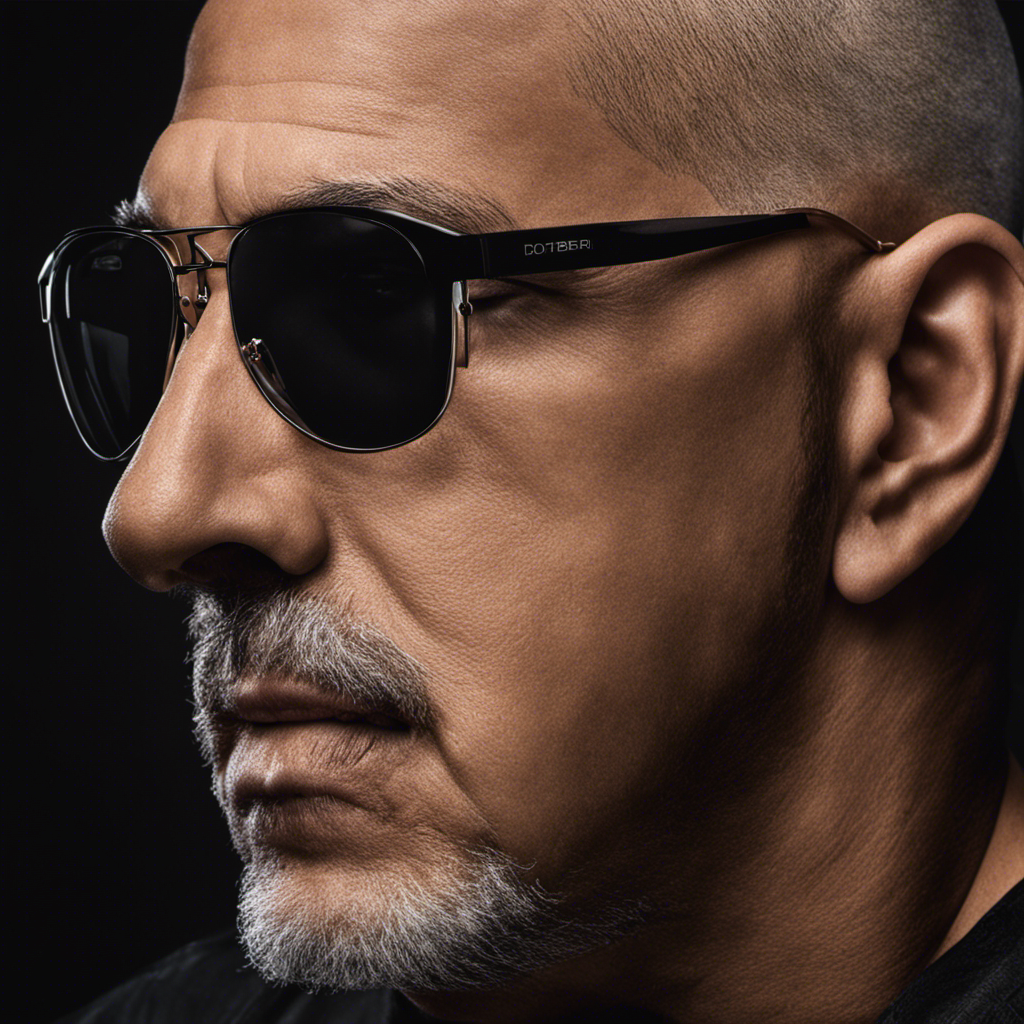
I have always been known for having a thick, lavish head of hair. So, when I decided to shave my head completely, the reaction was definitely one of surprise. Nevertheless, there was a meaningful reason behind my bold choice.
In this article, we’ll explore the motivation that led me to grab the scissors and embrace a brand new look. From the support of my community to the personal journey it took me on, join me as we delve into the reasons behind my decision to shave my head.
Key Takeaways
- Shaving his head was a way for Dom Tiberi to show support and solidarity for cancer patients.
- The decision to shave his head symbolized a new beginning and challenged societal norms.
- Shaving his head allowed Dom to embrace his true self and explore confidence.
- Skilled hairstylists played a crucial role in executing the transformation and providing emotional support during the process.
The Decision to Shave
You decided to shave your head because you wanted to show support and solidarity for cancer patients. It was not an easy decision to make, as you knew it would be a significant change in your appearance.
However, you understood the emotional process that cancer patients go through and wanted to do something meaningful to support them. Shaving your head was a way to connect with them on a deeper level and let them know that they are not alone.
The significance of appearance played a role in this decision as well, as you wanted to challenge societal norms and show that beauty is not defined by hair. This decision was not just about a new look for Dom, but about making a statement and standing with those battling cancer.
A New Look for Dom
Get ready to see Dom with a fresh new style – he’s got a shaved head! Dom Tiberi, known for his charismatic personality and signature salt-and-pepper hair, has decided to embrace change and explore confidence with his bold new look.
Here’s why he made the decision to shave his head:
-
A new beginning: Dom sees shaving his head as a symbol of starting fresh and embracing new opportunities.
-
Simplified grooming routine: With a shaved head, Dom no longer has to worry about styling or maintaining his hair, allowing him to save time and focus on other aspects of his life.
-
Breaking stereotypes: By challenging societal norms and expectations, Dom is encouraging others to embrace their true selves and not be defined by their appearance.
Overall, Dom’s decision to shave his head is a reflection of his willingness to step out of his comfort zone and embrace change.
Exploring the Motivation
Exploring the motivation behind Dom’s decision to embrace a shaved head, I see it as a symbol of starting fresh and breaking societal norms.
Dom explained that he wanted to make a change in his appearance that would reflect a new chapter in his life. By shaving his head, he wanted to challenge the conventional standards of beauty and redefine his self-image.
Dom believed that society places too much emphasis on external appearance, and he wanted to prioritize inner qualities instead. This decision allowed him to let go of societal expectations and embrace his true self. The impact on his self-image was significant, as he felt liberated and empowered by his bold choice.
Transitioning into the next section about ‘behind the scissors,’ it becomes important to understand the process and the people involved in this transformation.
Behind the Scissors
Behind the scissors, there is a team of skilled hairstylists who carefully execute the transformation. They understand the importance of a person’s hair and how it can affect their self-esteem and confidence.
When it comes to exploring hair loss, the hairstylists play a crucial role in helping individuals navigate through this difficult journey. Here are three ways in which they contribute to personal growth:
-
Expert advice: Hairstylists have a deep understanding of different hair types and can recommend suitable products and treatments for hair loss. They provide guidance on how to care for the hair and scalp, promoting healthy growth.
-
Emotional support: Dealing with hair loss can be emotionally challenging. Hairstylists offer a compassionate ear and create a safe space for individuals to express their concerns. They provide reassurance and encourage positivity during this transformative process.
-
Styling solutions: Hairstylists are adept at creating hairstyles that enhance the appearance of thinning hair. From choosing the right cut to using techniques like layering and texturizing, they can help individuals feel more confident and comfortable in their own skin.
Overall, the hairstylists behind the scissors play a significant role in the exploration of hair loss, supporting personal growth and empowering individuals to embrace their unique journey.
The Transformation Begins
The transformation begins as the skilled hairstylists carefully execute their expertise. It is a process that goes beyond just cutting hair; it is a journey of transformation.
As I sit in the chair, I can’t help but feel a mix of excitement and nervousness. The hairstylists are focused and attentive, making sure every snip and trim is done with precision. Throughout the process, they offer guidance and suggestions, ensuring that the final result will meet my expectations.
It is an emotional journey, as the old hair falls away and a new look emerges. I can’t help but feel a sense of renewal and confidence as I see the final result in the mirror. And with that, I am ready to tackle the next step: addressing my hair loss.
Tackling Hair Loss
Now, let’s dive into how to tackle hair loss and find effective solutions.
Hair loss can be a distressing experience, with a significant emotional impact on individuals. Fortunately, there are several hair loss solutions available that can help restore confidence and promote hair regrowth.
Here are three effective options to consider:
-
Medications: Prescription medications like minoxidil and finasteride have shown promising results in combating hair loss. These drugs work by stimulating hair growth and preventing further hair loss.
-
Hair transplant surgery: This surgical procedure involves transplanting healthy hair follicles from one area of the scalp to the balding areas. It can provide long-lasting results and a natural-looking hairline.
-
Laser therapy: Low-level laser therapy (LLLT) is a non-invasive treatment option that uses red light to stimulate hair growth. It can be done at home with handheld devices or in professional settings.
A Symbolic Gesture
Embrace the power of a symbolic gesture by considering alternative ways to express yourself and your journey with hair loss. For many people, hair holds a deep symbolic meaning and an emotional connection. When faced with hair loss, finding a way to reclaim that symbolism can be empowering. One option is to embrace a new hairstyle or even shave your head. By making this choice, you are taking control of your appearance and sending a message to the world that you are embracing your new reality. This act can be a powerful symbol of strength and resilience. It can also serve as a reminder that our worth is not defined by our physical appearance. The table below showcases some alternative ways to express your journey with hair loss.
| Symbolic Gesture | Emotional Connection |
|---|---|
| Donating hair to charity | Giving back and helping others |
| Wearing stylish headscarves or hats | Expressing personal style |
| Getting a meaningful tattoo | Permanently marking a milestone |
Dom’s Personal Journey
When reflecting on my personal journey, three key points come to mind:
-
The motivation behind my decision was rooted in a desire to make a symbolic gesture and raise awareness for a cause that I deeply care about.
-
The impact on my self-image was profound, as shaving my head challenged societal norms and forced me to confront my own insecurities.
-
Ultimately, this experience taught me valuable lessons about courage, resilience, and the power of using one’s platform for good.
Motivation Behind Decision
The motivation behind my decision to shave my head was to show support for cancer patients. I wanted to make a visible statement of solidarity and raise awareness for this important cause. This act of shaving my head was not just about cancer patients, but also about my own personal transformation.
It was a way for me to challenge myself, step out of my comfort zone, and break free from societal norms. Through this experience, I learned valuable lessons about inner strength, resilience, and the power of self-expression. Shaving my head allowed me to connect with others who have gone through similar journeys and share in their struggles and triumphs.
It was a truly transformative experience that has had a lasting impact on my life.
Here are three key reasons why my decision to shave my head was motivated by personal transformation:
-
Breaking societal norms: Shaving my head challenged societal beauty standards and allowed me to redefine my own sense of self-worth.
-
Stepping out of my comfort zone: Shaving my head pushed me to confront my fears and embrace vulnerability, leading to personal growth and self-discovery.
-
Connecting with others: By visibly showing my support for cancer patients, I was able to connect with a community of individuals who have faced similar challenges, fostering empathy and understanding.
Overall, shaving my head was a powerful act of support and personal transformation, allowing me to make a difference in the lives of cancer patients and grow as an individual.
Impact on Self-Image
You may have initially felt apprehensive about how shaving your head would affect your self-image. But over time, you’ve come to embrace and celebrate your unique appearance.
The impact on confidence can vary from person to person. But for me, it has been overwhelmingly positive. Shaving my head has allowed me to break free from societal pressures and expectations surrounding hair. It has given me a newfound sense of self-assurance and authenticity.
Rather than relying on external factors like hairstyle to define my confidence, I have learned to focus on inner qualities and personal growth. Society often places a great emphasis on physical appearance. But shaving my head has helped me challenge and redefine those standards.
It has been a liberating experience that has allowed me to embrace my individuality and stand tall with confidence.
Lessons Learned From Experience
Through this experience, I’ve gained valuable lessons about self-acceptance and embracing my uniqueness. It was initially challenging to shave my head, as I was worried about how others would perceive me. However, the journey taught me important lessons about personal growth and self-confidence. Here are three key lessons I learned:
-
Acceptance of self: Shaving my head forced me to confront any insecurities I had about my appearance. It taught me that true beauty comes from within and that I should embrace and love myself unconditionally.
-
Embracing uniqueness: By stepping outside societal norms and embracing my unique look, I learned the power of individuality. It allowed me to express myself authentically and stand out from the crowd.
-
Letting go of judgment: Shaving my head taught me not to judge others based on their appearance. It reminded me that everyone is on their own personal journey, and we should respect and accept one another for who we truly are.
Overall, this experience has been transformative, leading to personal growth and a newfound sense of self-acceptance and confidence.
The Supportive Community
When it comes to facing tough times, the impact of community support cannot be underestimated.
In times of adversity, communities have a unique ability to come together and provide a sense of unity.
Whether it’s through acts of kindness, emotional support, or practical assistance, the power of community support can make a significant difference in navigating challenging situations.
Impact of Community Support
The community’s support has made a significant impact on me after I shaved my head. The overwhelming outpouring of love and encouragement has touched my heart in ways I never expected.
Here are three ways in which the community’s involvement and emotional support have affected me:
-
Strengthened my resolve: Knowing that so many people are standing beside me in this journey has given me the strength to keep pushing forward and stay positive.
-
Increased awareness: The support from the community has helped raise awareness about the cause I am passionate about, bringing attention to the importance of cancer research and support.
-
Provided comfort: The kind messages, hugs, and gestures of support have provided me with a sense of comfort during this difficult time, reminding me that I am not alone in my fight.
The impact of the community’s support has shown me the power of unity in tough times.
Unity in Tough Times
In tough times, you can find strength and comfort in the unity of a supportive community. When facing difficult situations, such as financial hardships or personal struggles, having a strong community can make all the difference. The support and encouragement from neighbors, friends, and even strangers can provide a sense of belonging and hope. In times of crisis, a unified community can come together to provide resources, assistance, and emotional support. This unity creates a sense of resilience and fosters a spirit of collaboration, allowing individuals to overcome challenges and find solutions together. The following table showcases the various ways in which a supportive community can help individuals during tough times:
| Ways a Supportive Community Helps in Tough Times |
|---|
| Provides emotional support and understanding |
| Offers practical help, such as sharing resources or assisting with tasks |
| Encourages a sense of belonging and connectedness |
As we navigate through tough times, it is crucial to embrace change and adapt to new circumstances. This transition into the subsequent section will explore the importance of embracing change and how it can lead to personal growth and resilience.
Embracing Change
You should embrace change by exploring new opportunities and adapting to different situations. Change is inevitable, and rather than resisting it, embracing it can lead to personal growth and development. Here are three reasons why embracing change is important:
-
Opens doors to new experiences: Embracing change allows you to step out of your comfort zone and try new things. It presents opportunities for personal and professional growth, enabling you to learn and develop new skills.
-
Fosters resilience and adaptability: Change often brings challenges and uncertainties. By embracing change, you cultivate resilience and adaptability, which are crucial skills in navigating the ever-evolving world we live in.
-
Encourages self-reflection and self-improvement: Change offers a chance for introspection and self-reflection. It provides an opportunity to assess your strengths, weaknesses, and areas for improvement, allowing you to make positive changes in your life.
Embracing change can be transformative and lead to personal growth. As we explore the aftermath and reflect on the changes we have experienced, we can gain valuable insights and continue to grow and evolve.
The Aftermath and Reflections
Reflecting on the aftermath of change can provide valuable insights and help me continue to grow and evolve.
Change is never easy, and it often brings about a range of emotions. The emotional process that follows can be intense and overwhelming, but it is through this process that we learn and gain valuable perspective.
Change often requires vulnerability, as we navigate through unfamiliar territory and face uncertainty. It is in this vulnerability that we find strength and the power to adapt.
Reflecting on the aftermath of change allows me to understand the impact it has had on my life and to learn from the experience. It is during this reflection that I can appreciate the growth and transformation that has occurred, and use that as fuel to continue moving forward.
Frequently Asked Questions
How Long Did It Take for Dom Tiberi to Decide to Shave His Head?
It took me some time to decide to shave my head. I didn’t consult with any hair restoration experts before making the decision. It was a personal choice that I felt comfortable with.
Did Dom Tiberi Consult With Any Hair Restoration Experts Before Making the Decision to Shave His Head?
Yes, I consulted with hair restoration experts before deciding to shave my head. They explained the different options available and the benefits of shaving my head. Ultimately, I made the decision that felt right for me.
What Other Hairstyles Did Dom Tiberi Consider Before Deciding to Shave His Head?
Before shaving my head, I considered various hairstyle alternatives. I explored different grooming preferences, such as short haircuts and growing my hair out. However, ultimately I made the decision to embrace a shaved head.
Were There Any Specific Events or Experiences That Prompted Dom Tiberi to Explore the Motivation Behind His Decision to Shave His Head?
There were specific events that prompted me to explore the motivation behind my decision to shave my head. It was a personal choice, driven by a desire for change and a fresh start.
Did Dom Tiberi Experience Any Challenges or Difficulties During the Process of Shaving His Head?
During the process of shaving my head, I faced some challenges. It was emotionally impactful to see my hair being removed, but ultimately, it was a decision I made with a purpose in mind.
Conclusion
In the end, shaving my head was a transformative experience. Like Samson, I shed my hair as a symbol of strength and renewal.
It was a cathartic process, allowing me to embrace change and let go of the past.
The support from my community was overwhelming, showing me that we are not defined by our appearance, but by the love and acceptance we share.
Looking back, I am grateful for this journey and the lessons it taught me about resilience and self-discovery.
Lucy, with her knack for weaving words into compelling narratives, is a cherished member of our content team. Her journey into the world of content creation began with a love for storytelling, nurtured during evenings spent around campfires and family gatherings. These tales, filled with emotion and life lessons, left an indelible mark on her young mind, propelling her into the realm of writing.
-

 Guides and Tutorials3 months ago
Guides and Tutorials3 months agoHow to Shave Head at Home
-
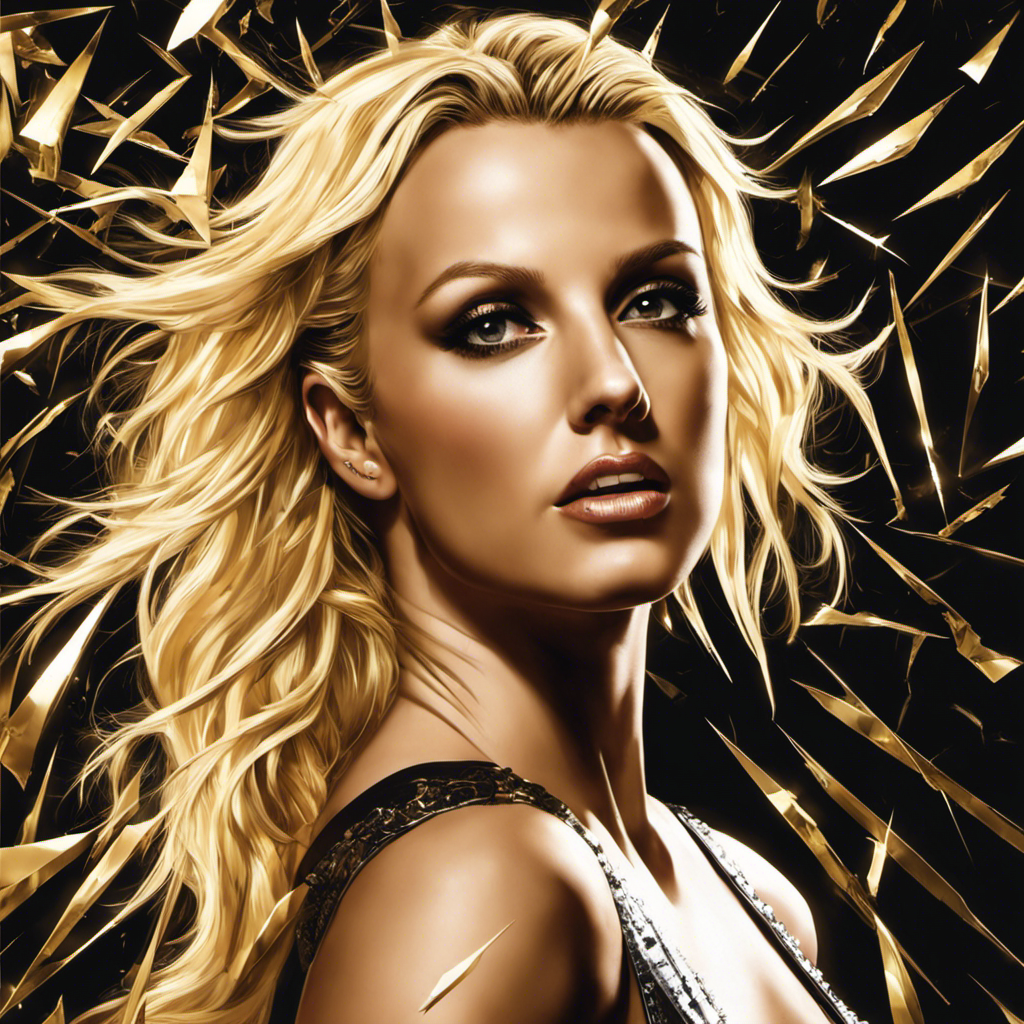
 Community and Stories2 months ago
Community and Stories2 months agoWhy Did Britney Shave Her Head
-

 Guides and Tutorials3 months ago
Guides and Tutorials3 months agoHow to Shave Half Your Head at Home
-

 Community and Stories2 months ago
Community and Stories2 months agoWhy Did Daph Shave Her Head
-

 Community and Stories3 months ago
Community and Stories3 months agoWhy Did Amanda Geise Shave Head
-
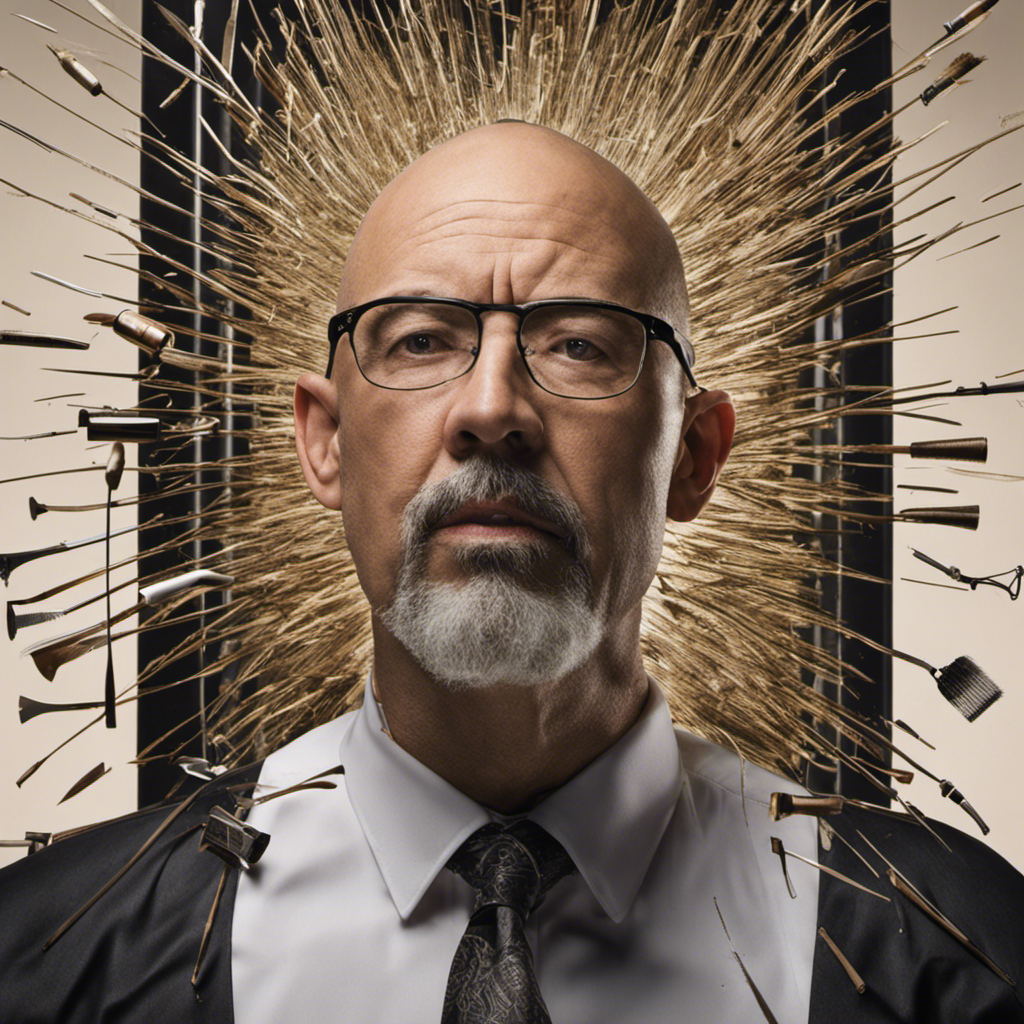
 Community and Stories2 months ago
Community and Stories2 months agoWhy Did Pat Shave His Head
-

 Community and Stories2 months ago
Community and Stories2 months agoWhy Did Bloodynine Shave His Head
-
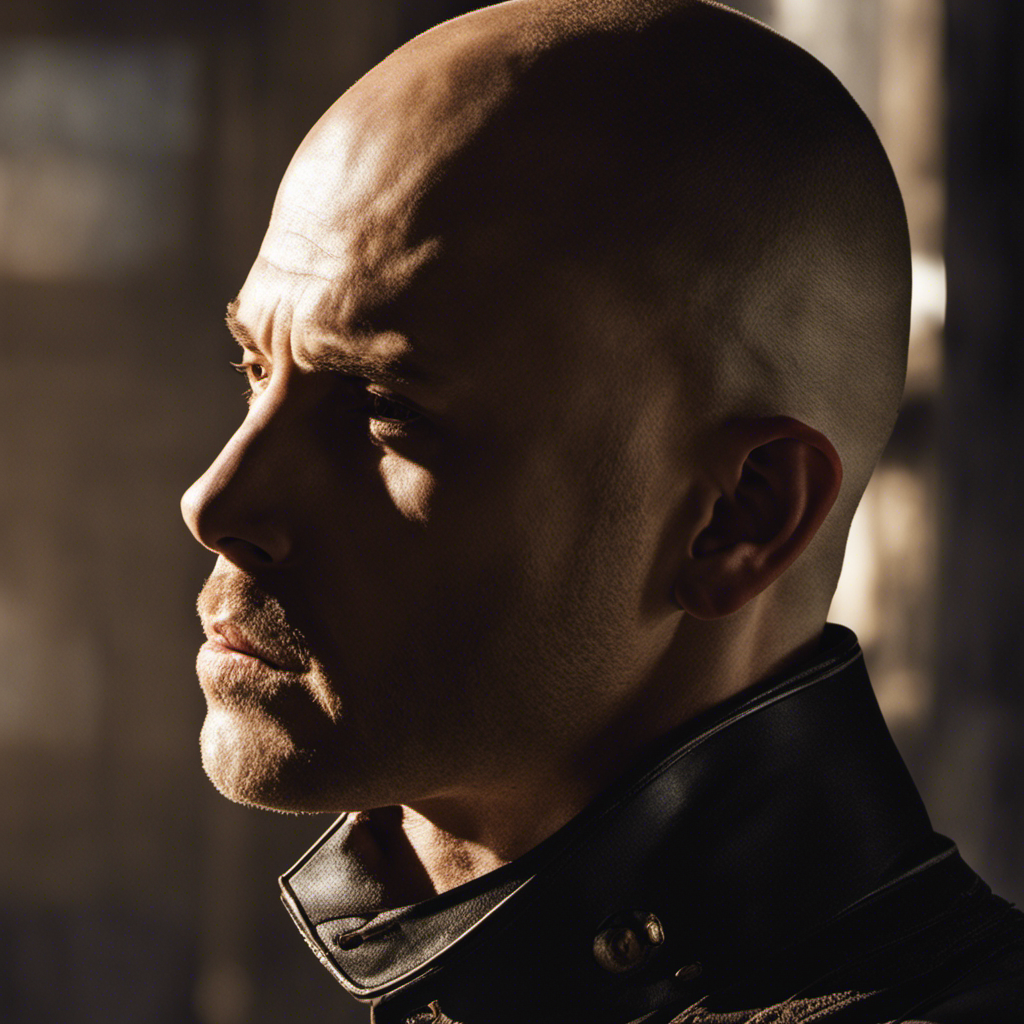
 Community and Stories3 weeks ago
Community and Stories3 weeks agoWhy Did Porter on Ghost Asylum Shave His Head










